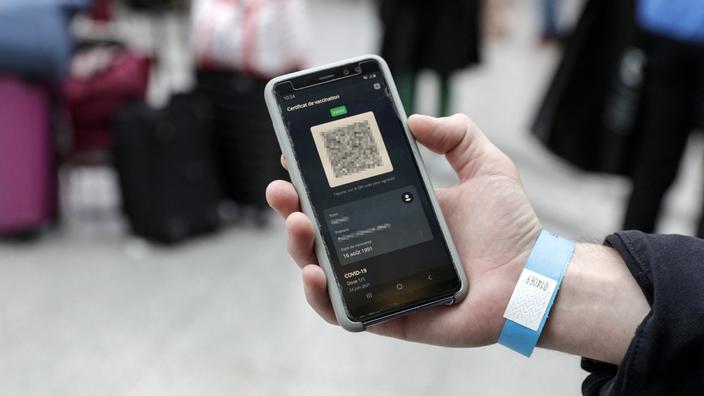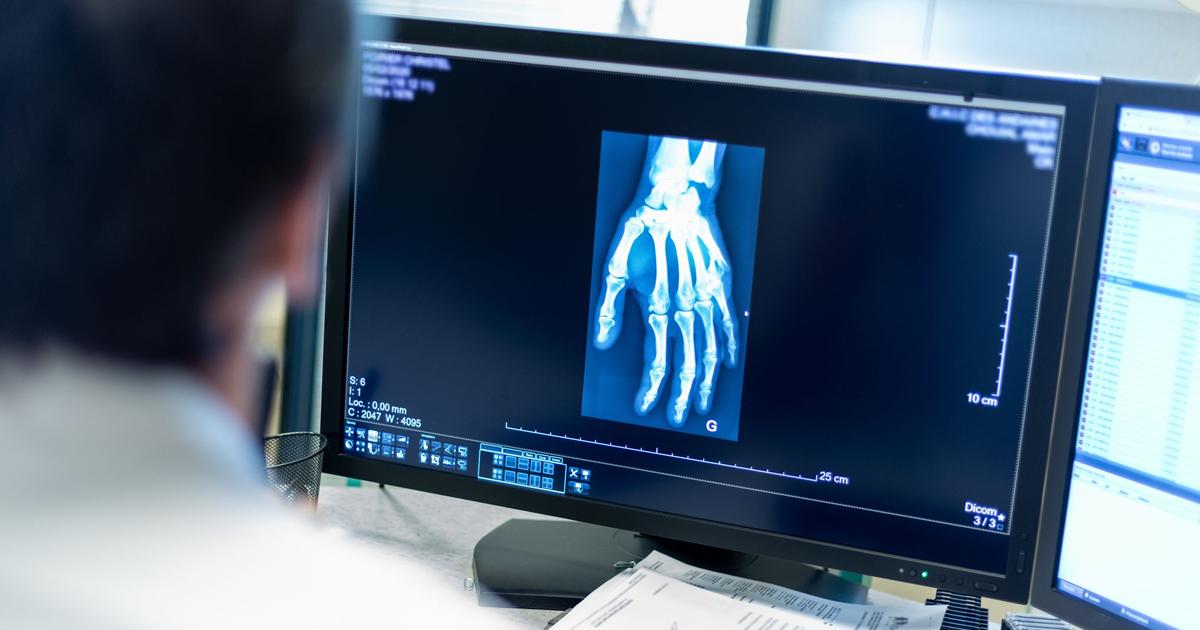Paul Cébille is a senior researcher at Ifop.
FIGAROVOX. - According to an Ifop poll for the JDD, 58% of French people are in favor of the vaccination pass, a figure that has fallen sharply. How do you explain this sudden drop in opinion?
Paul CÉBILLE. -
This fall can be explained both by the "signal" sent by the developments that we saw in the National Assembly around its adoption, in particular the lack of consensus among the Republicans, but also the comments of the president who did not please a significant part of the population and especially by the state of health of the country with a wide circulation of the virus and a number of deaths which is progressing in parallel.
The dissonance between the reality of the epidemic and the justifications given for introducing the health pass (breaking the circulation of the virus, alleviating the resuscitation services) creates doubt in the minds of the French, more towards the government but also towards with respect to vaccination.
Support for the vaccination pass fell from 63% to 58% in a few days and support for compulsory vaccination fell from 68% to 59%, this remains the majority but it should be noted that political speech is important for the French and that it could complicate the process of vaccinating the population.
Have we reached a tipping point?
The doubts of the French as to the vaccination pass, and more generally the management of the epidemic and vaccination on the part of the government, do not date from recent debates. They date back to when the measures taken to increase the proportion of the population vaccinated proved insufficient to contain one of the most dramatic effects of the epidemic: the overloading of hospitals.
The French have generally supported anything aimed at limiting serious hospitalizations and contributing to a way out of the crisis, but the justification for these measures must make sense to them.
Paul Cebille
It must be remembered that in March 2020, the applause of the French was intended to support caregivers and that public opinion understood that confinements and curfews were intended to reduce the pressure in intensive care units.
However, if vaccination has shown its effectiveness in reducing the serious forms of the disease, the problem of overloading hospitals has not been resolved as had been hoped for when the health pass was introduced.
Read alsoPresidential: Zineb El Rhazoui shows his support for Emmanuel Macron, “choice of heart and reason”
The French have generally supported anything aimed at limiting serious hospitalizations and contributing to a way out of the crisis, but the justification for these measures must make sense to them.
However, hospitals have been filled with fragile patients who have "escaped" vaccination.
It is not impossible that the vaccination pass will soon no longer fall into this category.
In detail, the vaccination pass is much more accepted among 65 year olds (71% in favor) than 18-24 year olds (48%). Is it relevant to speak of generational conflict?
It must be said that the Covid itself is a generational disease as it affects the oldest people so seriously. And conversely, the main measures applied to fight against the epidemic concern above all young people, a more active population who find themselves in places of socialization subject to the health pass and in schools, at university. But we must not exaggerate this generational conflict, the concern of young people is expressed above all about their future and their quality of life in absolute terms, this does not call into question intergenerational solidarity. For example, in an April 2021 Ifop poll, 54% of those under 35 believed that the younger generations and the older generations have values in common and 57% that they help each other.The link between the two is still resisting the health crisis rather well.
From a political point of view, will this declining membership rate benefit the opposition? Does Emmanuel Macron come out of it weakened?
In our latest wave of the Ifop-Fiducial “rolling” for Paris Match and Sud Radio, Emmanuel Macron confirms the slow erosion of voting intentions for his candidacy.
He remains in the lead (24.5%) - far ahead of his competitors divided on the left but also on the right - but lost 1.5 points in one week.
Positioning yourself as the guarantor of “regained freedoms” can be a profitable first-round strategy within one camp or the other.
Paul Cebille
This quick description of the state of opinion perfectly sums up the political situation for Emmanuel Macron.
Admittedly, doubt settles in the minds of the French, but the majority of them do not consider that another candidate can do better.
We know the voting intentions measured on the left, but on the right, the vision that the French have of the various candidates also illustrates this doubt.
In our Ifop-Fiducial opinion tag for Sud Radio, 52% of French people believe that neither Valérie Pécresse, nor Éric Zemmour and nor Marine Le Pen have the stature of a President of the Republic, 53% that none has the ability to handle a crisis.
Read alsoCyrille Dalmont: “The vaccination pass and the gears of citizen rating”
This is good news for the outgoing president but not necessarily for the democratic legitimacy of health measures, the recent threats and physical attacks against deputies unfortunately illustrate this paradox well.
In this context, can a candidate who poses as the guarantor of "recovered freedoms" pull out of the game? Doesn't he run the risk of hitting a wall given that older people vote more than younger people?
Admittedly, the French have attached increasing importance in recent years to the notion of freedom, but unlike politicians, they do not have a dogmatic vision of this idea.
We have seen this with the support they have given to health measures that are particularly detrimental to their freedoms, such as confinement or the health pass.
Positioning yourself as the guarantor of "recovered freedoms" can be a profitable strategy in the first round within one camp or the other, especially on the right, as we can clearly see that the competition between Valérie Pécresse, Éric Zemmour and Marine Le Pen to hope to qualify in the second round, as well as the pressure put in parallel by the anti-pass movements.
But the French do not totally reject the idea of having to reduce our freedoms to avoid a serious health crisis, which makes it difficult to position themselves "ideologically" with a view to a victory in the second round where it is necessary to convince a majority of Readership.








